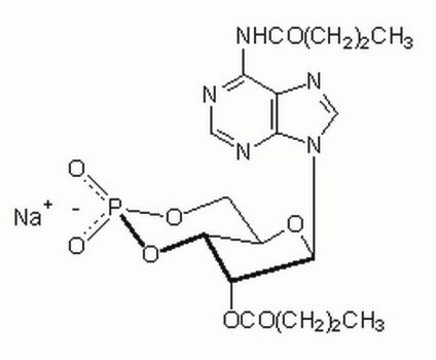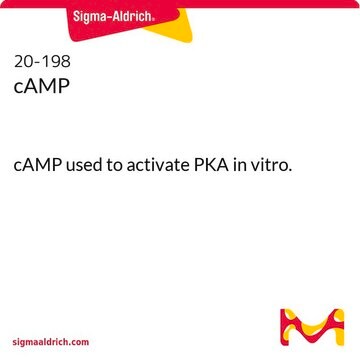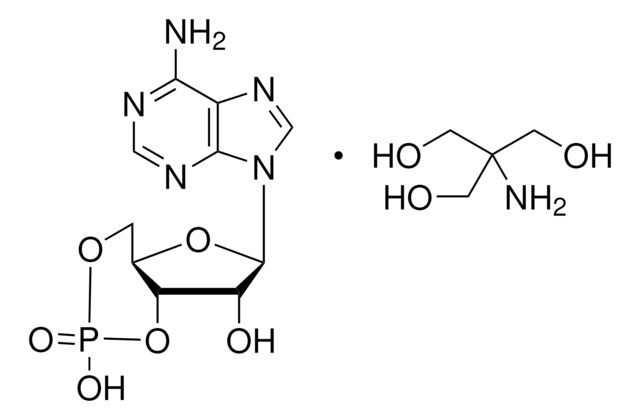D0627
N6,2′-O-Dibutyryladenosine 3′,5′-cyclic monophosphate sodium salt
≥96% (HPLC), powder
Synonym(s):
Bucladesine sodium salt, Dibutyryl cAMP sodium salt, Dibutyryl cyclic-AMP sodium salt
About This Item
Recommended Products
biological source
synthetic (organic)
Quality Level
Assay
≥96% (HPLC)
form
powder
impurities
≤0.5% Cyclic AMP
≤3% monobutyryl derivatives
color
off-white
solubility
H2O: 100 mg/mL
storage temp.
−20°C
SMILES string
[Na+].CCCC(=O)Nc1ncnc2n(cnc12)[C@@H]3O[C@@H]4COP([O-])(=O)O[C@H]4[C@H]3OC(=O)CCC
InChI
1S/C18H24N5O8P.Na/c1-3-5-11(24)22-16-13-17(20-8-19-16)23(9-21-13)18-15(30-12(25)6-4-2)14-10(29-18)7-28-32(26,27)31-14;/h8-10,14-15,18H,3-7H2,1-2H3,(H,26,27)(H,19,20,22,24);/q;+1/p-1/t10-,14-,15-,18-;/m1./s1
InChI key
KRBZRVBLIUDQNG-JBVYASIDSA-M
Looking for similar products? Visit Product Comparison Guide
Related Categories
Application
Biochem/physiol Actions
Caution
Storage Class Code
11 - Combustible Solids
WGK
WGK 2
Flash Point(F)
Not applicable
Flash Point(C)
Not applicable
Personal Protective Equipment
Certificates of Analysis (COA)
Search for Certificates of Analysis (COA) by entering the products Lot/Batch Number. Lot and Batch Numbers can be found on a product’s label following the words ‘Lot’ or ‘Batch’.
Already Own This Product?
Find documentation for the products that you have recently purchased in the Document Library.
Customers Also Viewed
Protocols
Step-by-step culture protocols for neural stem cell culture including NSC isolation, expansion, differentiation and characterization.
Our team of scientists has experience in all areas of research including Life Science, Material Science, Chemical Synthesis, Chromatography, Analytical and many others.
Contact Technical Service











